Top 9 Soft Skills High School Students Need to Succeed
Table of Contents
Integrating soft skills into the high school curriculum provides students with a significant advantage in their educational journey. By emphasizing these essential attributes alongside traditional subjects, students not only enhance their academic performance but also develop the interpersonal skills crucial for success in the workplace. This holistic approach ensures that students are well-prepared to navigate the complexities of both their academic and professional futures.
In this article, we’ll delve into the top 9 soft skills for high school students, offering insights on nurturing and integrating these skills into the curriculum.
- Critical Thinking
- Career Decision Making Skill
- Problem Solving
- Communication
- Collaboration
- Goal Setting
- Work Ethic
- Time Management
- Employability
1. Critical Thinking
Critical thinking skills are fundamental for high school students to navigate complex information and make informed decisions. Defined as the ability to question, analyze, interpret, evaluate, and judge information, critical thinking equips students with the tools to engage thoughtfully with academic material and real-world issues.
By honing these skills, students enhance their academic performance and lay a foundation for lifelong learning and success in various professional endeavors.

To develop critical thinking skills among high school students, educators can implement various activities:
- Analyzing Academic Papers: Students critically evaluate research articles to discern sources’ credibility and findings’ validity.
- Assessing Editorial Content: Students analyze newspaper editorials to identify bias, persuasive techniques, and underlying agendas.
- Evaluating Online Information: Students discern reliable sources from misinformation, applying critical thinking to assess the credibility and validity of online content.
2. Career Decision Making Skill
High school students stand at a pivotal juncture in their academic journey. According to Super’s developmental theory (1957), adolescence marks a critical phase for shaping self-concept and occupational aspirations. However, the complexity of choosing a suitable study program poses challenges for students, leading to errors in decision-making.
Various factors, including academic confidence, familial influence, socio-economic status, and cultural values, significantly impact students’ career choices, as stated in Austin and Roach’s research (2010).

To cultivate career decision-making skills among high school students, educators can employ a range of engaging activities:
- Career Scavenger Hunt: Encourages research and exploration of diverse professions.
- Job Shadowing Adventures: Provides firsthand insights into workplace dynamics and challenges.
- Mock Interview Extravaganza: Prepares students for real-world interviews while boosting confidence.
- Passion Project Showcase: Fosters creativity and self-expression in exploring career interests.
- Career Role-Play: Allows students to simulate professional scenarios and understand job roles.
- Career Trivia: Engages students in fun activities while assessing their career preferences.
- Career Speed Networking: Facilitates one-on-one interactions with professionals from various industries.
- Skills Workshop Showdown: Helps identify transferable skills through interactive group activities.
- Industry Investigation Game Show: Enhances knowledge about different careers through thought-provoking questions.
- Career Vision Board Party: Encourages goal-setting and visualizes future career aspirations.
3. Problem Solving
Problem-solving skills are indispensable for high school students preparing for higher education and workforce challenges. The benefits of developing problem-solving skills extend beyond academic success to meet the demands of prospective employers.
Project-based learning fosters a meaningful learning process, as well as equips students with the critical thinking and conflict resolution abilities employers seek. Additionally, practical on-the-job experiences are invaluable in developing soft skills for high school students, as highlighted by Levasseur (2013).
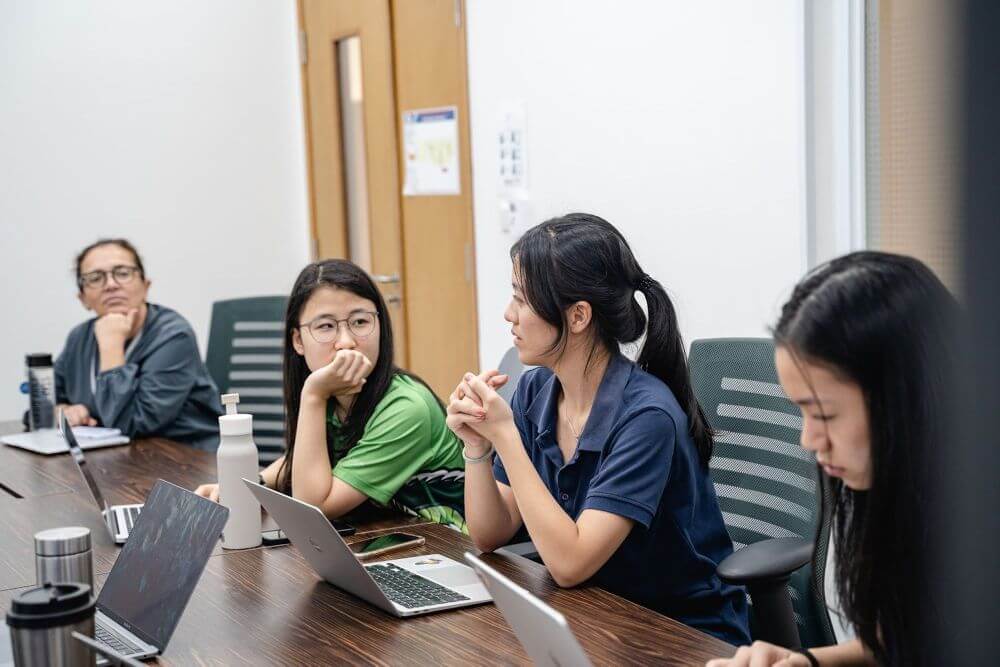
To develop problem-solving skills among high school students, educators can implement various activities:
- Volunteering: Provides opportunities to gain communication, teamwork, open-mindedness, and project management skills, which is underlined by Khasanzyanova (2017).
- Project-Based Learning: Engages students in real-world scenarios to apply problem-solving techniques and collaborate on solutions.
- Hands-On Experiments: Encourages students to experiment and find solutions to scientific or mathematical challenges.
4. Communication
Communication, an essential interpersonal skill, is also a cornerstone soft skill for high school students in their academic, personal, and professional development. This skill is invaluable across various contexts, with particular significance during adolescence.
Research by Erozakn (2013) highlights the correlation between high school students’ communication skills and social self-efficacy. Those with higher social self-efficacy demonstrate positive problem-solving approaches, increased self-confidence, and a willingness to resolve interpersonal conflicts.
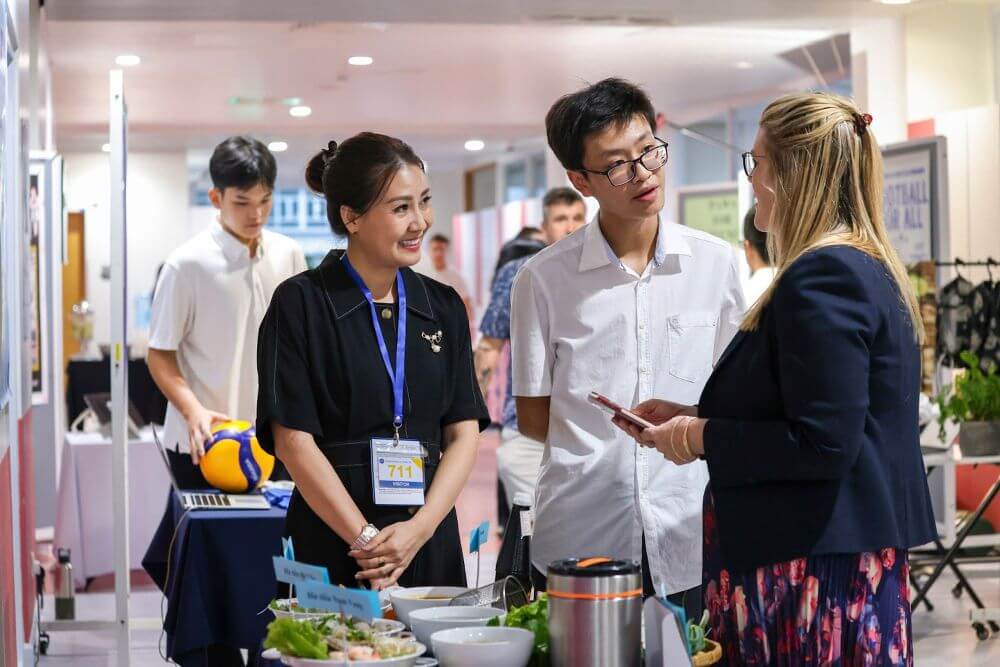
To promote communication skills among high school students, educators can implement diverse activities targeting different aspects of communication:
- Listening Exercises: Enhance active listening skills through activities that require students to listen and comprehend spoken information attentively.
- Verbal Communication Workshops: Provide opportunities for students to practice articulating their thoughts and ideas effectively through verbal communication.
- Written Communication Assignments: Develop writing skills through tasks such as essays, reports, and creative writing exercises.
- Feedback Sessions: Encourage constructive feedback exchange among peers to improve communication and interpersonal skills.
5. Collaboration
Collaboration encompasses a range of group skills vital for high school students to thrive in both academic and professional settings.
The benefits of cultivating collaboration skills extend beyond the classroom, with interpersonal social skills, conflict resolution abilities, and perspective-taking for success in collaborative endeavors. These skills are highly transferable from educational settings to the workplace, emphasizing the importance of developing collaborative abilities during high school.
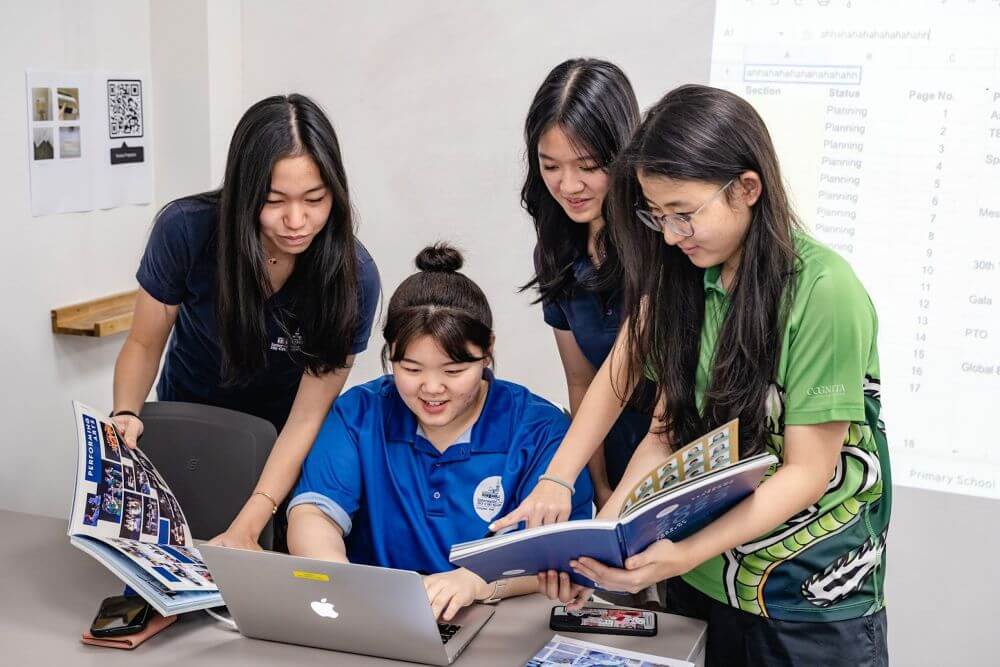
To boost collaboration among high school students, educators can implement various activities:
- Team-based Projects: Assign collaborative tasks that require students to work together to achieve common goals.
- Group Discussions: Facilitate discussions that encourage active participation and respectful exchange of ideas.
- Peer Feedback Sessions: Provide opportunities for students to give and receive constructive feedback on their collaborative efforts.
6. Goal Setting
Goal setting skills are integral for high school students as they pave the path to academic success and personal growth. One popular goal-setting framework is the SMART goals approach, which emphasizes specificity, measurability, achievability, realism, and timeliness, as highlighted by McLoed (2012). This methodology, extensively documented in self-help literature and online materials, offers a structured framework for effective goal setting and attainment.
Goal setting encompasses two main types: performance goals, linked to external incentives, and mastery goals, driven by intrinsic motivation for learning and engagement. A research by Bruhn and others (2016) suggests that students are more likely to succeed in achieving their goals when they have a greater sense of ownership over the goal-setting process.
Educators acknowledged the effectiveness of goal setting in facilitating student engagement in academic tasks but expressed a sense of being underprepared to incorporate goal-setting instruction within their existing lessons.
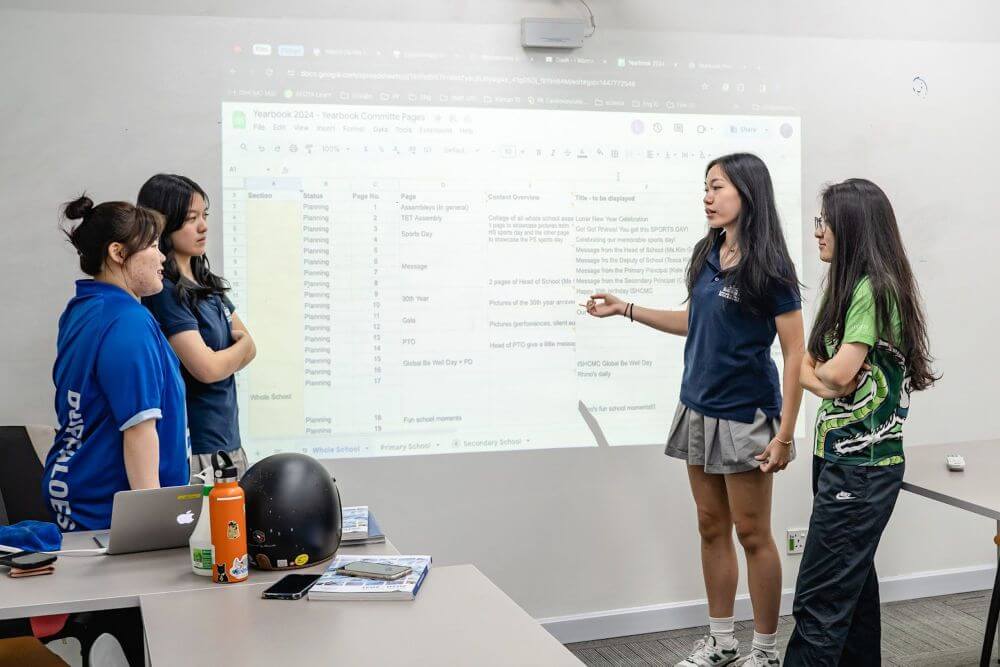
Therefore, to develop goal-setting skills among high school students, educators can implement these activities:
- SMART Goal Setting Workshops: Guide students in setting SMART goals aligned with their academic and personal aspirations.
- Goal Progress Reviews: Schedule regular reviews to assess goal progress, identify challenges, and adjust strategies accordingly.
- Goal Structure Analysis: Help students analyze the structure of their goals to ensure clarity and feasibility (Moeller, Theilier & Wu, 2011).
7. Work Ethic
Work ethic embodies a student’s commitment to fulfilling academic responsibilities, diligently completing class assignments and homework, and timely submission to teachers (Xu, 2011).
The importance of work ethic extends beyond academic success to life skills essential for future endeavors. Cultivating a strong work ethic equips students with valuable attributes such as time management, organization, motivation, and self-regulation (Xu, 2011).
Effective homework management strategies hinge on these soft skills, underscoring the interplay between work ethic and other competency areas.

To develop work ethic among high school students, educators can implement activities focusing on:
- Time Management Techniques: Teach students effective time management strategies to allocate time efficiently for academic tasks.
- Organizational Skills Training: Guide organizing study materials, setting priorities, and maintaining a structured study environment.
- Motivational Workshops: Conduct workshops to inspire students, encourage goal-setting, and encourage a positive attitude towards academic responsibilities.
- Self-Regulation Exercises: Facilitate activities to enhance students’ ability to regulate their behavior, stay focused, and persevere through challenges.
8. Time Management
Time management, often categorized under study or organizational skills, is a critical soft skill for high school students, involving self-regulation, and is closely linked to academic success.
Effective time management offers numerous benefits for high school students. First, it helps reduce procrastination by allocating specific activity periods, minimizing the tendency to delay tasks.
Second, it provides a sense of control and reduces stress by avoiding the last-minute rush to complete assignments. Third, prioritizing tasks and regularly assessing progress ensures the efficient use of time, leading to increased productivity.
Finally, students can enjoy guilt-free leisure time by promptly completing assignments and meeting deadlines, enhancing their well-being and work-life balance.

To develop time management skills, students can engage in various activities:
- To-Do Lists: Prioritize tasks and reward completion.
- Prioritization: Address critical tasks first based on importance and urgency.
- Eliminate Distractions: Clear the workspace and silence phones to focus.
- Anti-Procrastination Plan: Break tasks into smaller ones with deadlines.
- Study Schedule: Allocate daily study time and communicate boundaries.
- Identify Time Wasters: Minimize activities like excessive internet surfing.
- Organization: Establish a filing system for efficient document retrieval.
- Utilize Downtime: Accomplish small tasks or review materials during breaks.
- Productive Time Zone: Schedule tasks during peak energy periods.
- Time Budget: Allocate time for activities to maintain balance.
9. Employability
Employability skills, encompassing resumes, job applications, and interview prowess, are indispensable for high school students, particularly those not pursuing postsecondary education (Phillips, Blustein, Jobi-Davis & Finkelberg White, 2002).
Assessing student readiness involves evaluating technical knowledge and soft skills for professional interaction. Optimism and resilience are pivotal soft skills for high school students entering the workforce (Phillips et al., 2002).

To cultivate employability skills, high school students can engage in various activities:
- Career Skills Workshops: Participate in sessions covering resume writing and interview techniques to enhance job readiness.
- Apprenticeship Training Programs: Apply for programs offering hands-on experience and skill development in partnership with local businesses.
- Mock Interviews: Practice interview scenarios to refine communication and interpersonal skills, preparing for real-world job interviews.
Nurturing High School Students’ Soft Skills with ISHCMC
Fostering soft skills for high school students can promote their holistic development and future success. At ISHCMC, our IB Diploma Programme (IB DP) integrates Approaches to Learning (ATL) skills, equipping grade 11 and grade 12 students with essential competencies for academia and beyond.
Through a balanced curriculum, students cultivate thinking, research, communication, social, and self-management skills. By focusing on these areas, ISHCMC ensures that students are not only academically proficient but also possess the soft skills needed to succeed in all aspects of life.
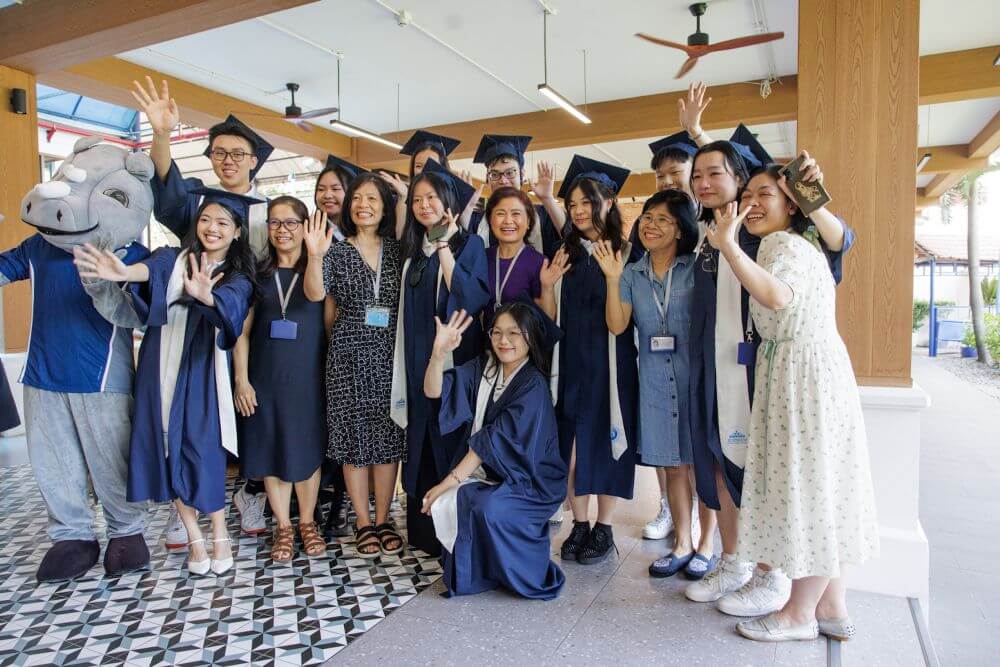
If you are seeking a transformative educational experience that highlights the development of both academic and soft skills for high school students, consider learning more about ISHCMC’s IB Diploma Programme. Apply today and discover how our IB DP empowers students for success!
FAQs about Soft Skills for High School Students
Explore FAQs addressing crucial soft skills for high school students navigating academic and personal growth.
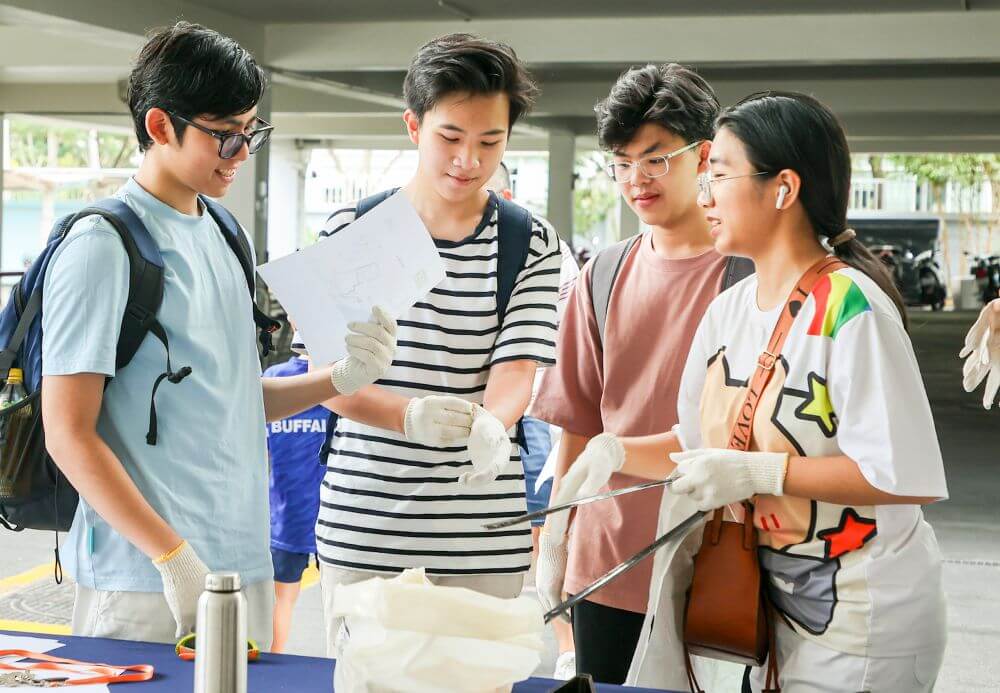
1. How can families help children build soft skills?
Here are a few ways to assist you in teaching soft skills to high school students:
- Communication Skills:
- Utilize technology: Record your child giving instructions or engaging in activities and provide feedback. Encourage participation in school activities and promote clear communication.
- Discuss different communication contexts: Explore various settings like with friends, in class, professionally, and at home. Teach appropriate speaking volume using a five-point scale.
- Practice active listening: Engage in conversations, model listening skills, and have your child repeat instructions in their own words. Encourage taking beverage orders and making eye contact during introductions.
- Collaboration Skills:
- Volunteer opportunities: Encourage helping neighbors or serving at shelters to learn teamwork.
- Family games: Foster cooperation, turn-taking, and rule-following through board games.
- Team sports: Participating in sports teaches communication, decision-making, and teamwork, regardless of skill level or venue.
- Work Ethic Skills:
- Task ownership: Assign your child responsibilities, like planning tasks such as obtaining a driver’s license.
- Understand workplace expectations: Emphasize punctuality, professionalism, and appropriate behavior at work.
- Exposure to workplaces: Visit parents’ workplaces to understand job tasks or enroll in mentor programs for broader skill development.
2. What is the importance of collaboration between schools and parents to build children’s soft skills?
Collaboration between schools and parents is vital for promoting soft skills for high school students. Schools provide interactive learning opportunities like group projects, debates, and clubs to enhance communication and teamwork. Meanwhile, parents cultivate supportive home environments through open communication, empathy, and teaching resilience. By combining efforts, children receive consistent reinforcement of fundamental skills, enabling them to thrive academically, socially, and emotionally.
3. What are popular activities to develop high school students’ soft skills?
Here are popular activities to develop high school students’ soft skills:
- Group Assignment Activity:
- Long-term group projects with assigned leaders and tasks.
- Encourages teamwork, communication, problem-solving, decision-making, and self-assessment skills.
- Argumentative Presentation Activity:
- Students defend viewpoints through speeches.
- Enhances active listening, public speaking, and critical thinking skills.
- TED-Ed Talks Video Activity:
- Watching Ted-Ed talks and discussing topics.
- Promotes critical thinking, public speaking strategies, and group discussion skills.
- Assigning One’s Homework:
- Students choose their homework, explaining their choices.
- Develops autonomy, decision-making, and self-assessment skills.
- Pair Discussion Activity:
- Discussing topics to encourage empathy and listening.
- Enhances empathy, listening, and summarization skills.
- Progress Check Activity:
- Students maintain journals to track progress.
- Fosters self-evaluation, time management, and organizational skills.
Reference:
Austin, C. (2010). An investigation of African American high school students’ career decision self efficacy. Utah State University, American Society for Engineering Education, https://doi.org/10.18260/1-2–15649
Bruhn, A.L., McDaniel, S.A., Fernando, J. and Troughton, L. (2016). Goal-setting interventions for students with behavior problems: a systematic review. Behavioral Disorders, 41 (2), 107-121.
Erozkan, A. (2013). The effect of communication skills and interpersonal problem solving skills on social self-efficacy. Educational Sciences: Theory & Practice 13(2), 739-745.
Khasanzyanova, A. (2017). How volunteering helps students to develop soft skills. International Review of Education, 63, 363-379.
Levasseur, R.E. (2013) People skills: developing soft skills—a change management perspective. Interfaces 43(6), 566-571.
McLeod, L. (2013). Making SMART goals smarter. Physician Executive. 38, 68-72.
Moeller, A.J., Theilier, J.M., Wu, C. (2011). Goal setting and student achievement: a longitudinal study. The Modern Language Journal, 96, 153-169.
Phillips, S.D., Blustein, D.L., Jobin-Davis, K. & Finkelberg White, S. (2002). Preparation for the school-to-work transition: the views of high school students. Journal of Vocational Behaviors 61, 202-216.
Roach, K. L. (2010). The role of perceived parental influences on the career self-efficacy of college students. State University of New York, Counselor Education, New York.
Xu, J. (2011). Homework completion at the secondary school level: a multilevel analysis. The Journal od Educational Research 104, 171-182.






